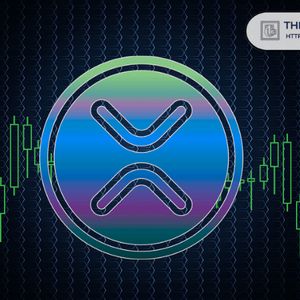Market Pulse
A significant tremor has rippled through both the traditional finance and digital asset sectors following a bold declaration by Hargreaves Lansdown, one of the United Kingdom’s largest retail investment platforms. The firm has controversially stated that “Bitcoin is not an asset class,” reigniting a fundamental debate about the classification and inherent value of cryptocurrencies within established financial paradigms. This assertion challenges the increasingly common perception of Bitcoin as a legitimate store of value and investment vehicle, prompting critical discussion on what truly constitutes an asset class in the evolving global economy.
Hargreaves Lansdown’s Controversial Stance
Hargreaves Lansdown, with its substantial client base and influence in the UK’s retail investment landscape, articulated its position during a period of fluctuating crypto market sentiment. The firm’s statement underscores a prevailing skepticism among some traditional financial institutions regarding the maturity and regulatory clarity of digital assets. While not directly prohibiting client exposure, the sentiment reflects a cautious, almost dismissive, view that contrasts sharply with the growing institutional interest and product development seen across other parts of the world.
- Lack of Fundamental Value: The core argument often revolves around Bitcoin’s perceived lack of underlying revenue streams or intrinsic value derived from a tangible asset or productive enterprise, unlike stocks (company earnings) or bonds (interest payments).
- Volatility Concerns: High volatility and speculative nature are frequently cited as reasons to differentiate Bitcoin from traditional asset classes, which typically exhibit more predictable risk/reward profiles over the long term.
- Regulatory Ambiguity: The evolving and often fragmented global regulatory landscape for cryptocurrencies also contributes to traditional finance firms’ reluctance to categorize them alongside established asset classes.
Defining an Asset Class: Traditional vs. Digital
The debate largely hinges on the definition of an “asset class.” Traditionally, an asset class is a group of financial instruments that share similar characteristics and are subject to the same laws and regulations, often demonstrating similar responses to market forces. Examples include equities, fixed income, real estate, and commodities. These classes are typically defined by:
- Distinct risk and return characteristics.
- A clear regulatory framework.
- Mechanisms for fundamental valuation (e.g., discounted cash flow for stocks, yield for bonds).
For Bitcoin and other cryptocurrencies, these traditional definitions often fall short or require significant reinterpretation. Proponents argue that Bitcoin possesses unique characteristics that warrant its own distinct classification, or at least a re-evaluation of what defines an asset in the digital age. Its decentralized nature, finite supply, and utility as a medium of exchange or store of value are often highlighted as defining features.
Implications for Retail Investors and Regulatory Landscape
Such a definitive statement from a major platform like Hargreaves Lansdown carries significant implications, particularly for retail investors. It could reinforce conservative viewpoints, potentially deterring individuals from exploring digital asset investments, or at least encouraging extreme caution. For the broader regulatory landscape, it adds another layer to the ongoing discussion about how to categorize and oversee crypto assets effectively. Regulators globally grapple with fitting digital assets into existing financial frameworks or creating entirely new ones.
- Investor Education: Highlights the critical need for comprehensive investor education on digital assets, their risks, and potential benefits.
- Industry Pushback: May spur crypto industry advocates to intensify efforts to clearly define and demonstrate the value proposition of digital assets to traditional finance.
- Policy Influence: While not a regulatory body, the stance of influential platforms can indirectly shape public opinion and, subsequently, influence policymaking discussions.
Industry Reactions and Future Outlook
The crypto community and other traditional finance entities have reacted with a mix of agreement, disagreement, and calls for more nuanced understanding. Many in Web3 assert that Bitcoin, by its very existence and market capitalization, has already established itself as a new, albeit unconventional, asset class. They point to its correlation (or lack thereof) with other traditional assets, its growing adoption, and its emergent use cases as evidence of its unique characteristics. This debate is far from over and will likely continue to evolve as digital assets mature and integrate further into the global financial system.
Conclusion
Hargreaves Lansdown’s declaration that Bitcoin is “not an asset class” serves as a stark reminder of the cultural and definitional chasm that still exists between established finance and the nascent world of cryptocurrencies. While the crypto industry continues to innovate and gain mainstream traction, the path to universal acceptance as a recognized asset class, complete with clear regulatory frameworks and fundamental valuation models, remains a contentious and ongoing journey. This dialogue is crucial for shaping the future of investment and financial innovation.
Pros (Bullish Points)
- Sparks necessary dialogue about crypto asset classification and regulation.
- Could lead to clearer frameworks if the industry pushes back effectively.
Cons (Bearish Points)
- Potential to deter cautious retail and institutional investors.
- Reinforces existing skepticism about crypto in traditional finance circles.



